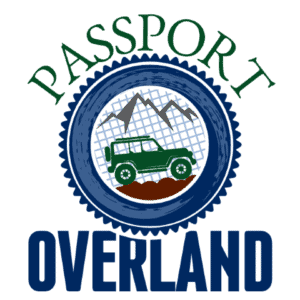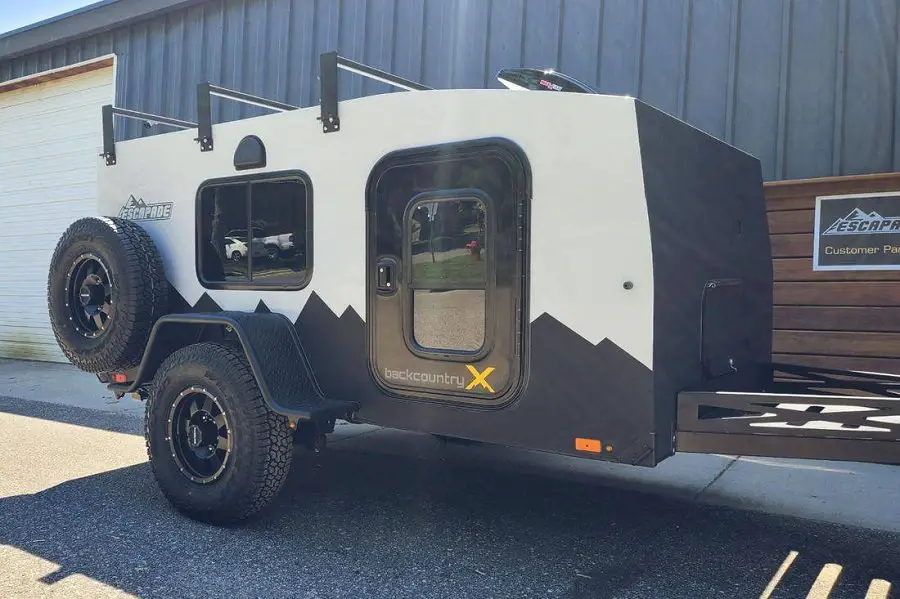
A trailer is an unpowered vehicle that is pulled by a powered vehicle to transport things. Trailers that are used in Overlanding are different from the standard trailer because they are specially built to conquer rough terrain and give you the most adventurous camping experience you could ever have. This kind of trailer goes by many names such as overland camping trailer, offroad trailer, and overland trailer.
To tow a trailer or not? This is probably the most difficult question you’ll have to face, if you think of all the camping gear you want to and have to take on your Overlanding trip. If this is your case, you are on the right page! Here we’ll discuss the PROS AND CONS OF OVERLANDING WITH A TRAILER to help you come up with a final decision.
Pros of Overlanding With a Trailer
Features of overland trailers include several recovery points, higher ground clearance, the Best Type of Suspension for Overlanding, durable, lightweight, and all-terrain tires. Here are the benefits you will get from all these features.1. Additional Storage
This is the most appealing aspect of towing a trailer behind your Overland vehicle. The trailer is an extra space to store camping gear and other stuff you want to bring on your trip. If the available vehicle you have for Overlanding only gives you a little space not enough to fit your tent and storage boxes, you can just tow a trailer so you don’t have to fit everything on your 4×4.
The additional storage offered by trailers will also give you room for organization. A trailer is a big room to let you store all your stuff neatly and efficiently.
2. More Possibilities
It’s hard to create a replica of your home in remote places. Even if you want to bring your mattress and every utensil in your kitchen for a convenient camping experience in the wild, you will always be limited. This is mainly because the only space and storage available at your disposal is your Overland vehicle. But with overland trailers even enjoying a cold beverage, watching movies, and dancing to loud music is possible even in remote places. Below are things you can have with an overland trailer.
- Refrigerator
- Kitchen setup
- Rooftop area for rooftop tents
- A/C
- Heater units
- Water tanks
- A space to work
3. Comfortable Camping Experience
By now you can already tell that trailers best serve the camping aspect of Overlanding. The add-on options and upgrades to an overland camping trailer are all done to make your camping experience more tolerable and manageable. We all know that it’s not easy to live in the wild where your resources are limited.
When you are far from your home, a good night’s sleep, warm meals, and easy living are all impossible. But not when you have a trailer that can provide you with all the things that you might need to thrive in remote places.
4. Vehicle Ready for Adventure
When you have a trailer where you store all your Overlanding gear, you can be adventure-ready any time of the day. Chances are your overland vehicle is not exclusive for adventures. You also use it as your means of transportation going to work and personal appointments. With camping trailers, you separate your reality from your escape.
Your trailer is a storage for all your Overlanding gear. Whenever you want to go Overlanding for a weekend trip you can just hook up the trailer and go. Also, trailers will make it easy for you to set up camp and pack up when it’s time to leave.
5. A Base Camp and a Second Home
The overland trailer will serve as your second home during your entire life on the road. Just like your house, the trailer will provide you with everything you need to live, even in the desert. Finding a campsite in remote places is a challenge when you go on an overland trip. This wouldn’t be a problem when you tow a trailer, because it already serves as your base camp. You can set up a camp anywhere you like and you can leave it there if you want to explore places near that place.
Cons of Overlanding With a Trailer
There are just some things you have to consider when you want to hook up a trailer to your Overland vehicle. The towing capacity of your 4×4 is one. Aside from these considerations, here are the downside of towing a trailer when you go Overlanding.
1. Something Holding You Back
In Overlanding, the journey is the adventure. Your life will mainly be on the road, driving most of the time. When you hook up a trailer at the back of your 4×4, the experience would be like something is holding you back and stopping you from going beyond your limits. Your trailer is the first thing that will come to your mind when you encounter a muddy trail.
The possibility of your trailer flipping over when you drive on rough terrain is scary enough to hold you back from the adventure of offroading. Your overland trailer will add up to all the things you have to consider when your Overlanding trip involves lots of rough terrains.
2. Costly
An overland trailer can cost you $10,000 to $20,000 just to have additional storage for your camping gear. The price actually depends on the size of the trailer. You can find teardrop trailers that are under $10,000 just like the Oregon Trailer Do-Drop. This is not the only cost you will incur from having an overland trailer, but you will also have to spend on its maintenance, repairs, and upgrades so it functions according to how you want it to.
3. Requires a Lot of Preparation
Did you know that you have to practice driving your vehicle with the trailer first before you embark on your Overlanding trip? If you want to ensure your safety you have to test the trailer to know if you can control it and if your 4×4 can carry its weight. This is just one preparation you have to do. You also have to make sure that it’s adventure-ready by checking the tires if it’s in a good condition, and whether the equipment inside is securely placed to avoid breakages and damages when you drive on bumpy roads.
4. Extra Weight
The whole overland trailer is an additional weight that your vehicle has to carry, and it would make your vehicle more difficult to control and maneuver. Pulling a trailer is more complex than just driving your 4×4 without it. With extra weight, you have to reduce your driving speed and be extra vigilant when driving to avoid road accidents. Ground clearance, tire pressure, suspension, turning radius, changing lanes are the things that you have to think about with a trailer hooked up on your overland vehicle.
5. More Difficult to Drive Off-road
It will be more difficult to drive offroad when you have another vehicle that has another set of tires and suspension you have to modify in order for it to be ready for rough terrain. The weight of the trailer is a disadvantage when your Overlanding trails include deep snow, mud, sand, and boulders. Without practice and preparation, offroading with a trailer will be very challenging, you’ll end up regretting towing a trailer in the first place.
Best Overland Camping Trailers
The difficulty and the risks that come with pulling a trailer can be quite discouraging, but you can actually eliminate all these by just choosing the best camping trailer for Overlanding. To enjoy the pros and minimize the cons here are the best overland camping trailers for all kinds of adventure.
1. Off Grid Trailers
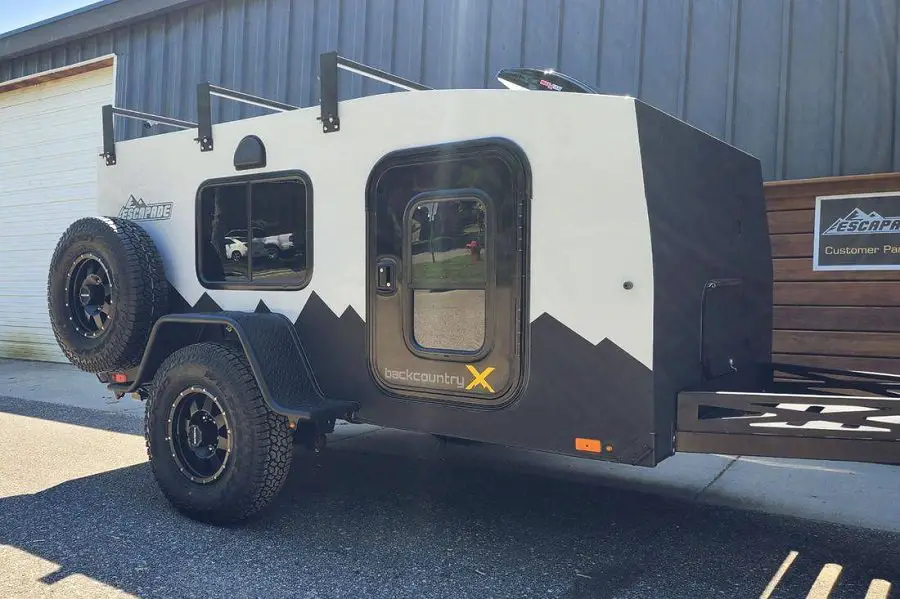
The Off-Grid Expedition 2.0 is all aluminum which makes it resistant to mold and mildew. Whether you want to overland in the desert or in the forest, this off-road militaristic trailer can conquer even the most extreme terrain. You can decide how you want your trailer to look with its customizable design option. Add-on options include a Bluetooth stereo system, a TV, and a convertible couch.
2. Escapade Campers
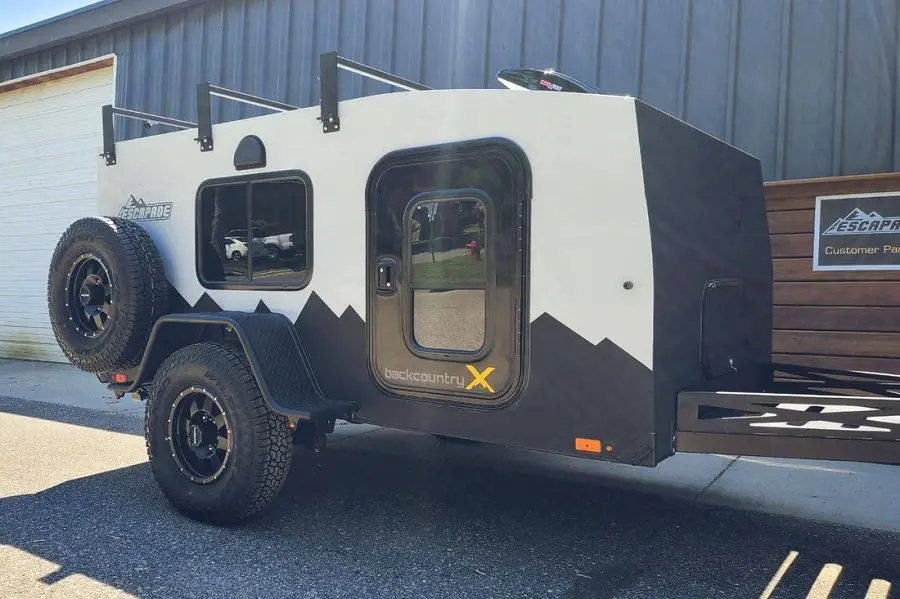
The standard total weight of an Escapade Off-Road Trailer is 1550 lbs. This overland trailer is suitable for all kinds of terrain because of its durability, 16″ ground clearance, and its Timbren Axle-less suspension with easy lube hubs. Escapade trailers may look small, but inside you’ll see lots of storage options for your stuff. It has 80″ sleeping space, onboard electric battery charger, matching spare, and dual LED interior cabin lights which make it the best trailer for your camping adventure.
3. Adventure Campers Opus OP4
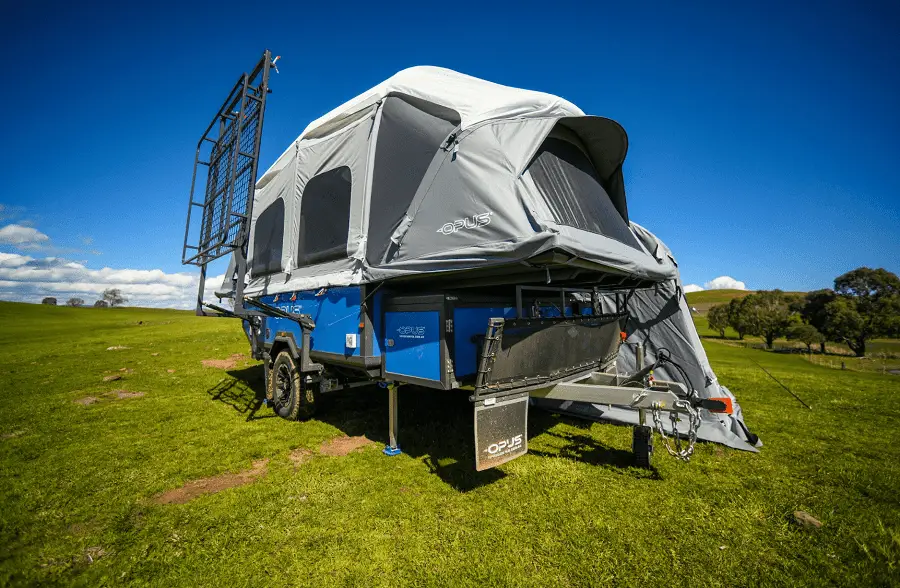
The Opus OP4 is a folding camper weighing 3,020 pounds and the space inside of this trailer is enough for four people to sleep in. The add-in options can be a kitchen with storage, a hot air/water system, a stove, or a fridge. This trailer is easy to set up with its 5 step setup guide, and it’s self-inflating so you don’t have to worry about tent poles.
Final Thoughts
To tow a trailer or not? You’ve probably noticed that the pros of towing a trailer center around a convenient and comfortable camping experience, while the cons mainly talk about the difficulty in driving off-road. Determine what kind of adventure you want to experience during your overland travel and from there, you can get an answer whether to tow an overland trailer or not.
